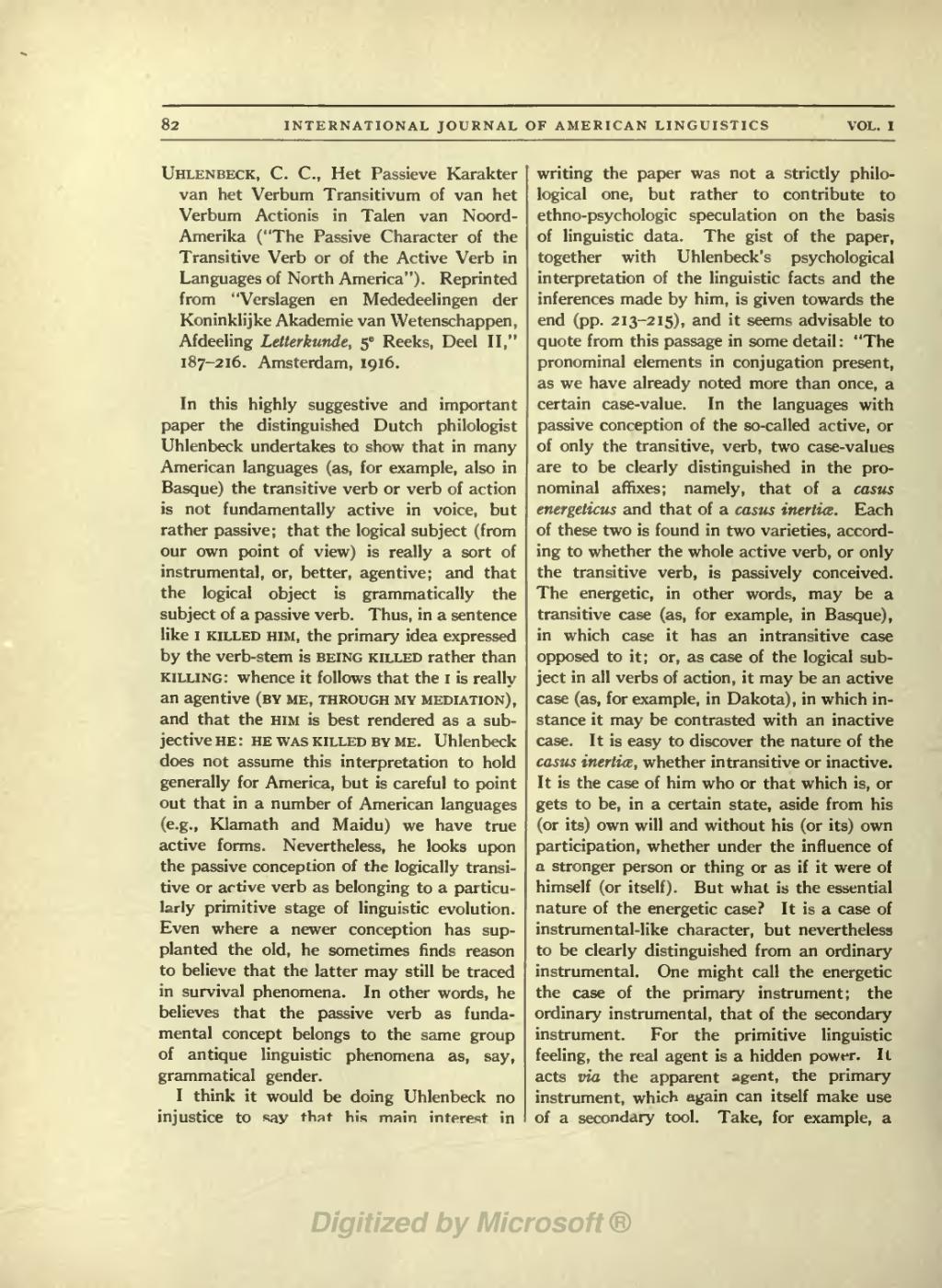In this highly suggestive and important paper the distinguished Dutch philologist Uhlenbeck undertakes to show that in many American languages (as, for example, also in Basque) the transitive verb or verb of action is not fundamentally active in voice, but rather passive; that the logical subject (from our own point of view) is really a sort of instrumental, or, better, agentive; and that the logical object is grammatically the subject of a passive verb. Thus, in a sentence like i killed him, the primary idea expressed by the verb-stem is being killed rather than killing: whence it follows that the i is really an agentive (by me, through my mediation), and that the him is best rendered as a subjective he: he was killed by me. Uhlenbeck does not assume this interpretation to hold generally for America, but is careful to point out that in a number of American languages (e.g., Klamath and Maidu) we have true active forms. Nevertheless, he looks upon the passive conception of the logically transitive or active verb as belonging to a particularly primitive stage of linguistic evolution. Even where a newer conception has supplanted the old, he sometimes finds reason to believe that the latter may still be traced in survival phenomena. In other words, he believes that the passive verb as fundamental concept belongs to the same group of antique linguistic phenomena as, say, grammatical gender.
I think it would be doing Uhlenbeck no injustice to say that his main interest in writing the paper was not a strictly philological one, but rather to contribute to ethno-psychologic speculation on the basis of linguistic data. The gist of the paper, together with Uhlenbeck's psychological interpretation of the linguistic facts and the inferences made by him, is given towards the end (pp. 213-215), and it seems advisable to quote from this passage in some detail: "The pronominal elements in conjugation present, as we have already noted more than once, a certain case-value. In the languages with passive conception of the so-called active, or of only the transitive, verb, two case-values are to be clearly distinguished in the pronominal affixes; namely, that of a casus energeticus and that of a casus inertiæ. Each of these two is found in two varieties, according to whether the whole active verb, or only the transitive verb, is passively conceived. The energetic, in other words, may be a transitive case (as, for example, in Basque), in which case it has an intransitive case opposed to it; or, as case of the logical subject in all verbs of action, it may be an active case (as, for example, in Dakota), in which instance it may be contrasted with an inactive case. It is easy to discover the nature of the casus inertiæ, whether intransitive or inactive. It is the case of him who or that which is, or gets to be, in a certain state, aside from his (or its) own will and without his (or its) own participation, whether under the influence of a stronger person or thing or as if it were of himself (or itself). But what is the essential nature of the energetic case? It is a case of instrumental-like character, but nevertheless to be clearly distinguished from an ordinary instrumental. One might call the energetic the case of the primary instrument; the ordinary instrumental, that of the secondary instrument. For the primitive linguistic feeling, the real agent is a hidden power. It acts via the apparent agent, the primary instrument, which again can itself make use of a secondary tool. Take, for example, a
